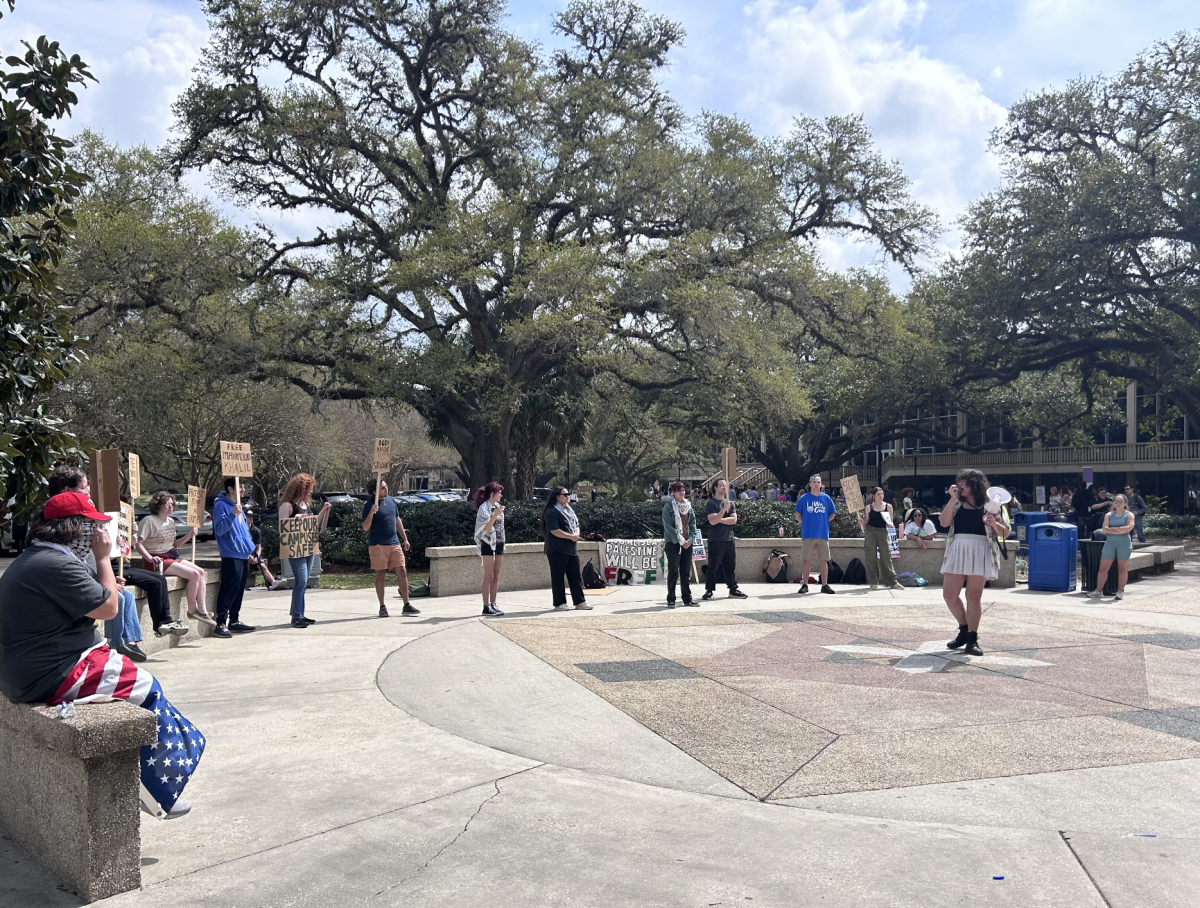Despite budget cuts this semester, Dean Peter Haynes of the LSU School of Veterinary Medicine said in August that he was determined to maintain the school’s quality.The semester started with a $750 tuition increase under House Bill 872, which allowed graduate school programs funded by the state to raise their tuition. The LSU Board of Supervisors approved the increase July 16.”We’re forced to keep up with the escalating costs of education,” Haynes said. “The school needs to be accurately funded to continue.”Professors at the vet school received numerous grants this semester. The Equine Medication Surveillance Lab received July 1 a three-year, $4 million contract extension with the Louisiana State Racing Commission to provide drug testing for racehorses in the state.The money was used to purchase new lab instrumentation, hire new employees and increase the lab’s capabilities, according to Steven Barker, founder and director of EMSL.The lab is one of only 18 labs of its kind in the country and serves as the official drug-testing laboratory for racehorses in Louisiana. The lab tests about 8,000 samples a year, Barker said.This year, the contract was extended and increased from $681,000 a year to $1.32 million a year, Barker said.He said the increased funding was necessary after national rules were implemented in Louisiana requiring increased drug testing.The lab’s machinery can cost as much as $300,000 apiece and is used to test samples for the long list of illegal drugs in the database, Barker said.The vet school also brought in eight grants from the National Institute of Health as a part of the American Recovery and Reinvestment Act of 2009, which brought in $1.48 million in federal stimulus dollars.Thomas Klei, associate dean for research and advanced studies, said receiving a grant is a nationally competitive process.”It suggests our faculty are competitive and have strong research programs,” Klei said.Shulin Li, professor in comparative biomedical sciences, received a $219,403 supplemental award in September for his work with therapy cancer treatment.Li has successfully treated cancer in three dogs thanks to his research efforts. If a treatment can work on a dog, it is a promising prospect for humans, he said.Li said he hoped the grant would be enough to one day get FDA approval so a human clinical trial can be conducted.Kevin Macaluso, associate professor in pathobiological sciences, also received a $108,495 supplemental grant in September. Macaluso researches flea-borne and tick-borne rickettsial diseases.Part of his grant money went toward purchasing a new $50,000 real-time PCR machine which can amplify five different genes in one sample, Macaluso said.The vet school also contributed to a landmark event for the state.After losing an estimated 8,500 animals in Hurricane Katrina, Louisiana developed its first animal response unit in September to minimize the number of animals lost in natural disasters. The grant came from the American Society for Prevention of Cruelty to Animals and the International Fund for Animal Welfare.The $140,000 truck and trailer unit are used for animal disaster assistance, said Rebecca Adcock, deputy director of Louisiana State Animal Response Team. It allows LSART volunteers to create an on-site communication center, emergency veterinary care station and an evacuation shelter.The 36-foot-long trailer is large enough to set up an evacuation shelter inside. Renee Poirrier, director of LSART, said the unit is able to hold about 50 dogs and cats.Since the ribbon-cutting ceremony in September, LSART has already put the unit to use.LSART used the unit to save a 25-year-old geriatric horse from rising flood waters in West Monroe on Nov. 9.The horse was given general anesthesia and loaded onto a glide, a large animal stretcher, according to Mustajab Mirza, University assistant professor of equine surgery. The team then used a ramp to lower the horse onto the boat, which took it to safety. Mirza said the team was able to finish the entire process in two hours, and because the vet school conducts large animal emergency rescue training, working with horses in disaster situations is becoming routine.McConnico said large animal training classes are held often, and another class will be held the last week of April at the LSU Fire Training Center.”We may do some things monthly at the vet school as a part of a continuing education program for animal control officers in Louisiana,” she said.
– – – -Contact Sarah Eddington at [email protected]
Vet school maintains quality despite budget cuts
December 6, 2009



